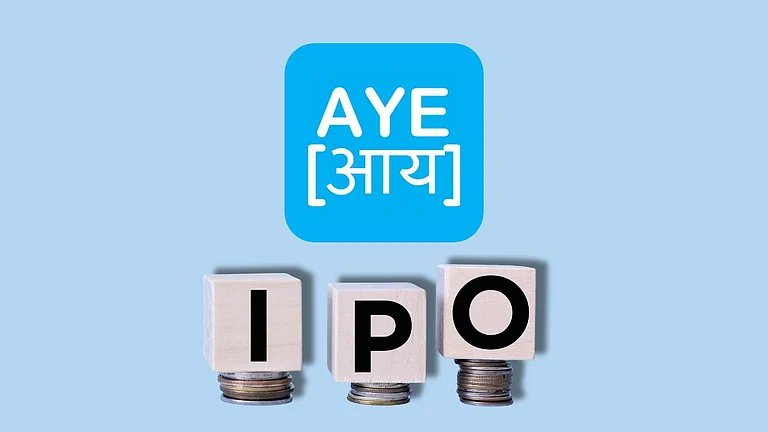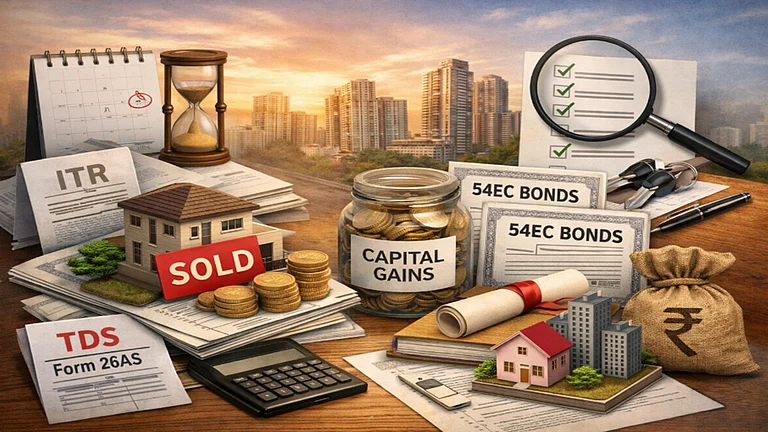The announcements on income tax is without doubt one of the most eagerly awaited aspects of the Union Budget every year.
Typically, in every Budget, the income tax slabs and rates are reviewed. And now, there’s also the choice between the old and new tax regimes that taxpayers are keen to know.
So, what is to be expected of this Budget, scheduled to take place on July 24? What will Union Minister of Finance Nirmala Sitharaman bring to the taxpayers this Budget?
According to experts, taking past trends into account, the government is expected to continue making structural changes rather than providing tax breaks to taxpayers.
This time, the government will likely stress more on the new tax regime, robust tax collection machinery, processing of tax refunds, and speedy disposal of appeals and grievances.
Says Suneel Dasari, founder and CEO of EZTax.in, a tax filing platform: “We are anticipating that Budget 2024 will declare the complete implementation of the new tax regime and the sunset of the previous tax regime, thereby facilitating tax compliance easier. It is also expected to increase the income tax rebate under the new tax regime to Rs 30,000 in order to make the taxable income tax-free up to Rs 7.5 lakh (currently set at Rs 7 lakh in Budget 2023).”
Here are some of the expectations for Budget 2024.
Increase Standard Deduction For Salaried Employees: There are various expenses that an employee incurs during his/her employment for which no deduction is available, whereas a taxpayer carrying on a business can claim deductions for similar expenses. For instance., an employee using his personal car for commuting between office and house gets no deduction for the running and maintenance expenses of the car, while a businessman can claim such expenses.
Says Rahul Singh, senior manager, Taxmann, tax and corporate advisor: “At present, the standard deduction is limited to Rs 50,000, regardless of the employee's salary level. An employee earning Rs 5 lakh can claim a standard deduction of Rs 50,000, and an employee earning Rs 50 lakh can also only claim Rs 50,000 as standard deduction. Therefore, the government should consider increasing the standard deduction, or, introduce a percentage-based deduction similar to what is available for rental income.”
Add Some Deductions Under New Tax Regime To Make it More Attractive: The government should introduce some basic deductions to make the new tax regime more appealing. For instance, allowing taxpayers to claim deductions for expenses such as house rent allowance (HRA) and medical insurance under the new tax regime.
Alternatively, the government should introduce new types of deductions specific to the new tax regime. These measures would encourage more people to switch to and benefit from the new tax regime.
Says Akhil Chandna, partner, Grant Thornton Bharat: “We are expecting reasonable deductions under the new tax regime i.e., health insurance premiums, life insurance premiums, home loan interest, etc.”
“We also expect an increase in deduction limits under Section 24 of the Income-tax Act, 1962 for interest paid on home loans from the existing Rs 2 lakh to Rs 3 lakh,” adds Chandna.
NRI Home Sellers-Simplify TDS Compliance For HomeBuyers:
According to the current provisions, home buyers need to deposit 1 per cent of the purchase value as tax deducted at source (TDS), where the property value is Rs 50 lakh or more. Although the TDS deposit process is simple and convenient, if the seller is a resident (i.e., with the challan-cum-statement in Form no. 26QB), the requirements are more complex if the seller happens to be a non-resident Indian (NRI).
Says Divya Baweja, partner, Deloitte India: “In cases where the seller is an NRI, a higher tax rate is deducted, and the buyer is also required to obtain a tax deduction and collection account number (TAN), deposit the tax deducted, as well as file the e-TDS return. While the purchase and sale of the property is not a recurring transaction, obtaining TAN for the mentioned purpose alone may result in having more inactive TANs down the line.”
“To address the above-mentioned issue, the TDS process applicable to cases where the seller is an NRI may be eased by introducing these challan-cum-statements, which are applicable for a resident seller,” adds Baweja.
Increase Basic Exemption Limit: “The basic exemption limit has stayed at Rs 2.5 lakh for many financial years. In the new tax regime, it is slightly higher at Rs 3 lakh. Considering rising food prices, moderate income growth, and increased living costs, it is recommended that the basic exemption limit be raised in both tax regimes,” says Singh.
Increase In Home Loan Interest Deduction: At present, the deduction for interest on housing loans for self-occupied properties is capped at Rs 2 lakh, a limit unchanged for nearly a decade. With property prices rising in India, this limit should be increased to at least Rs 4 lakh to benefit middle-class taxpayers.
Increase In Threshold Limit Of Section 80C: Section 80C is one of the most talked about provisions of the Income-tax Act, 1961. It allows a deduction of up to Rs 1.50 lakh for investments in Employees’ Provident Fund (EPF), Public Provident Fund (PPF), payment of life insurance premium, the principal repayment of home loans, children’s education expenses, and so on. Since the threshold limit under this Section is just Rs 1.5 lakh, there is very little scope left for taxpayers to make further investments. Consequently, various investment schemes have been losing the sheen.
It is suggested that the maximum deduction under Section 80C should be increased to Rs 2.5 lakh.
HRA–Add More Cities To Metropolitan Cities Under Umbrella: An employee can claim exemptions for HRA if he/she pays rent for his/her residential accommodation. As of now, higher deductions are allowed if the employee is living in any of the four metropolitan cities, i.e., Delhi, Mumbai, Kolkata, and Chennai.
At present, the rental charges for houses in Bengaluru or Hyderabad are equal to or higher than what a tenant has to pay for an equivalent house in, say, Delhi or Kolkata. Many Indian cities have developed employment opportunities in the last two decades, and accordingly, rental charges have also increased manifold. Therefore, there is an urgent need for the inclusion of many other cities in this category, such as Bengaluru, Hyderabad, Pune, Ahmedabad, Jaipur, Noida, Gurgaon, etc.













